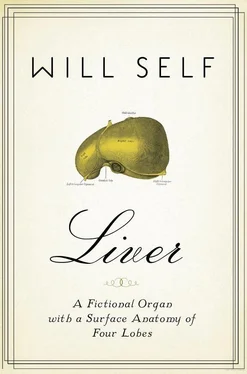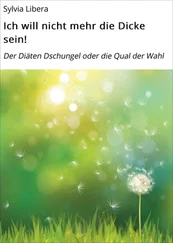Put simply: Joyce hadn’t wanted to live any more with this metastasized town, any more than she’d wanted to suffer the torment and indignity of her cancer. But if she could have continued with this dispassionate order? Well, maybe. However, such speculations were massively beside the point — far too late , because they had turned into Gertrudstrasse, a street of forgettable five-storey apartment blocks, and the cab was now halting in front of the dullest: a pedestrian exercise in the ruling of straight lines, which wouldn’t have looked out of place in the Bull Ring.
‘At every step of the procedure it is, how you say, practice — as well as our legal responsibility — to remind you of exactly what you are doing. Do you understand?’
‘Yes.’
‘This liquid is an anti-emetic, it is necessary for you to drink all of it, yes, and also to eat as many of the chocolates as you can; otherwise you may, how you say — ’
‘Vomit.’
‘Exactly so, vomit the phenobarbital. Unfortunately with this particular drug you must take a lot, yes?’
Dr Hohl’s accent was slight and his English of good cloth stretched over German syntax. He appeared unremarkable, the kind of vaguely rotund man — in his late fifties, his brownish-grey hair shaded in above his neat ears, his charcoal-grey suit jacket pushed apart by his paunch — that could be encountered in any side office, anywhere in the developed world. His medicalization was effected by gold-rimmed bifocals and a small gold caduceus lapel badge.
But this wasn’t an office; it was a one-bedroom flat on the fourth floor of a Zü rich apartment block; and, while everything had been done to make it seem, if not lived in, at any rate liveable, the air-freshened atmosphere remained determinedly commercial. It was, Joyce thought, the work place of an osteopath, a New Age healer or perhaps — although she had never seen such a thing — the better kind of prostitute.
The walls were papered pale yellow, the curtains were blue chiffon. Through an open door she could see a small bedroom. An Alpine landscape hung over the bed, which was a single with a thick mattress and a green coverlet.
The three of them were sitting at a round table, upon which stood a fresh candle, a garland of dried flowers at its base. The legal papers were spread out on the blue and white check tablecloth. Beside the official registration of her birth sat a camcorder, inside of which was a tiny Joyce trapped for all eternity, saying: ‘I wish it to be known that my death has been entirely voluntary, and that I was subject to no pressure or duress by anyone.’
Treu und Glauben , that, she knew, was the Swiss’s conception of themselves. Every contract was entered into with full faith and the required credit; to go over the small print was to impugn the other party’s character. Anyway, she had read the papers already — there were copies posted on the organization’s website — so she had signed them all — all except her will, which she had brought from England herself.
‘So,’ Dr Hohl said, fetching a silvery cardboard box from a wall-mounted cupboard, ‘you will have a chocolate, yes?’
They were pimply truffles bedded in tissue paper. Joyce thought back to the Widder Hotel and the complimentary chocolates on the coffee table in her room. They had also been truffles — but white ones, caught in a cage of spun sugar. Very stylish . She and Derry had lived in Bournville for almost thirty years. Then, after his death three years ago, she was left alone in the idealized home. On days when the wind was in the east, the smell from the chocolate factory fell across the privet hedges and the lawns that had been mown into stripes. Everything was sweet, sweet, incredibly sweet.
The absolute horror of suicide gripped Joyce like a palsy: its mundanity and its profundity. The bulk of life, she now understood, was a succession of erasures, one action cancelling out the last. Not now. Everything that she was doing had a machined finality — if only. if life could’ve been like this. such intensity ; and now to die with people not much liked , let alone loved.
She took one of the truffles and placed it in her mouth. It began to dissolve immediately. As if a spell had been broken, Dr Hohl went back to the cupboard, got out a plastic canister, opened it and began spooning the contents into a glass, while counting out in an undertone, ‘ Eins, zwei, drei, vier, f ü nf. ’, all the way to ‘ f ü nfzehn ’, when he was somehow back at the table, seated, and looking at Joyce with his gold-rimmed green eyes.
Dr Hohl put the glass full of poison down beside the papers and said, ‘Now, the anti-emetic, yes?’
It tasted vile — at once ferrous and organic. Joyce almost brought up the stuff meant to stop her retching. This was why the chocolates were needed — to fill her mouth with sweetness, so that the bitterness wouldn’t overwhelm her.
‘Und now, another chocolate, yes?’
Joyce couldn’t fault Dr Hohl’s manner: he was devoid of any inappropriate levity, yet not solemn; deeply concerned and altogether present , while by no means intimate. He had managed to weld all three of them into a highly effective team within minutes of their entering the flat. The evidence of this was that Joyce wanted to please him, so took another truffle — although she didn’t feel like it.
Only Isobel, Joyce felt, was letting the side down. Her daughter sat sideways on the straight-backed chair, her shoulders rounded in powder-blue cashmere (Joyce’s own) and shaking. She had a wad of Kleenex pressed to her eye, while a second sent out soggy tendrils from where it was lodged in the sleeve of her cardigan. Isobel — who had hardly spoken to Dr Hohl — was being barely polite . Her hair, Joyce noted, was a mess : Medusa snakes of various blonde hues, and it was far too long for a woman of her age .
Joyce washed down the chocolate sludge with a second gulp of the bitter anti-emetic. ‘Do please to remember’, Dr Hohl said, ‘that at any of these times, Mrs Beddoes, you are able to make the mind change, yes?’
He had said this at least three times before, and on each occasion Joyce had replied, ‘I understand.’ It was, she grasped, the very call and response of assisted suicide: Dr Hohl was the priest, announcing the credo, and she was the congregation of one that affirmed it.
Then, suddenly, the anti-emetic was all gone and there were only three truffles left in the box. Joyce couldn’t recall all this eating and drinking, but the pads of her fingers were sticky, and her lips were tacky.
Dr Hohl poured water into the glass heaped with phenobarbital, then stirred it: ting-ting, ting-ting. It would’ve been better, Joyce thought, to’ve brought Miriam, or even Sandra — anyone, in fact, other than Isobel, who simply can’t cope .
‘Perhaps,’ Dr Hohl ventured, ‘you would be finding yourself more comfortable in the bedroom?’
‘No, thank you,’ Joyce said. ‘I’d as soon stay here for the meanwhile.’
‘In that case’ — he held up the cloudy glass — ‘I must tell you that if you drink this you will die.’ He handed it to Joyce.
The glass was deadly cool to the touch; she hated her shaking jaundiced hand that held it. A memory came to Joyce, not of her beloved husband, her Derry, about to press his lips to hers, nor even of Isobel’s slathered newborn features, but of a wasp batting against a windowpane.
It had been late the previous October, a mere six weeks after the diagnosis. The chemo had its own miserable side effects, yet they only partially masked her real symptoms; she knew it wasn’t working. The stop-go of her bowels, the waves of fatigue and dread, the acid bile that rose up when she sang, ‘ Confutatis maledictis, Flammis acribus addictis, Voca me cum benedictis! ’ And the insomnia. Sitting in the study, the curtains open, she had marvelled at the washed-out world without; it looked as if the greens and reds and blues would never return. Then, a tiny tapping at the pane. It was the wasp — tired, cold, its summer done — struggling for admission to the warmly coloured room.
Читать дальше












